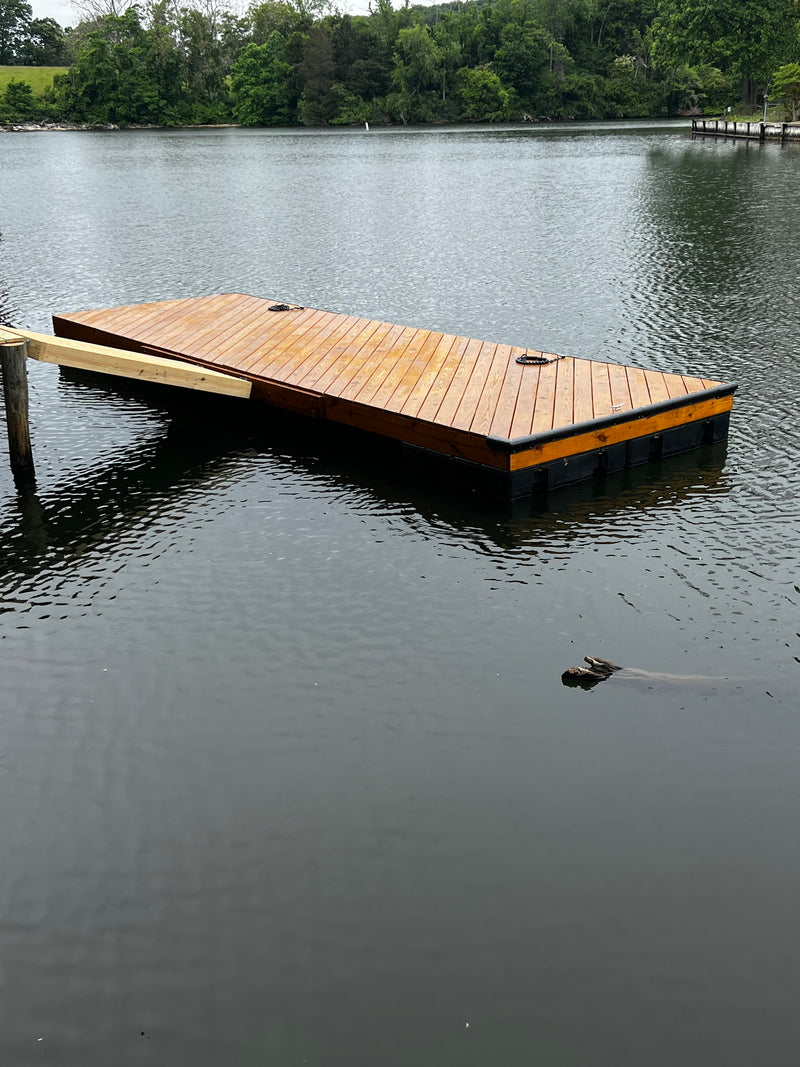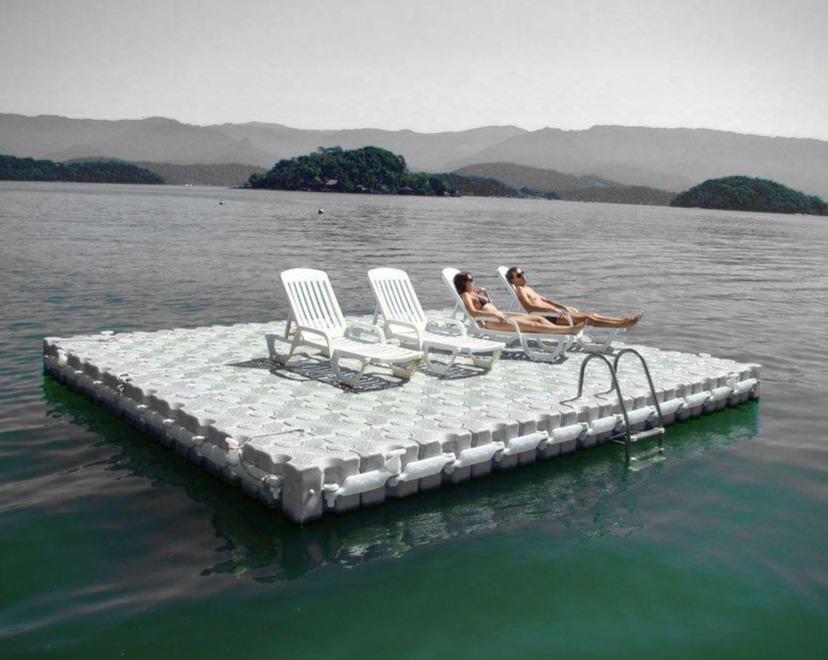Floating Dock Solutions That Transform Your Waterside into a Kicking Back Oasis
Floating Dock Solutions That Transform Your Waterside into a Kicking Back Oasis
Blog Article
The Ultimate Guide to Choosing the Best Floating Docks
Choosing the optimal floating dock requires a thorough understanding of various aspects that affect both efficiency and long life. Factors such as dock types, materials, and necessary attributes considerably affect your decision-making process.
Comprehending Floating Dock Kind
When picking a drifting dock, it is important to understand the various types offered, as each serves unique objectives and applications. Floating docks mainly fall under three categories: modular, stationary, and pontoon docks.
Modular docks are made up of specific areas that can be conveniently constructed or reconfigured, making them excellent for transforming water degrees and varied uses, such as leisure activities or commercial operations. Their adaptability enables personalization based on particular needs.

Pontoon docks are defined by their buoyant framework, frequently made up of several pontoons that provide security and assistance. They are specifically well-suited for bigger vessels and are commonly utilized in marinas or for beachfront residential properties. Understanding these kinds help in selecting the most ideal floating dock to meet specific demands, making sure optimal capability and security.
Trick Materials for Durability
Choosing the appropriate products for floating docks substantially influences their resilience and durability. One of the most usual materials include wood, plastic, metal, and composite materials, each offering unique benefits and limitations.
Wood, usually preferred for its visual appeal, requires regular maintenance to endure wetness and decay. Pressure-treated lumber can improve resistance to rot, however it might still be at risk to parasites and weathering.

Plastic docks, made of high-density polyethylene (HDPE), are resistant to deterioration, UV radiation, and effect, making them a popular selection for coastal settings. Their light-weight nature also promotes simple installation and moving.
Metal docks, normally constructed from light weight aluminum or galvanized steel, supply extraordinary strength and durability. They are immune to rust, specifically when treated, but might require extra insulation to stop warmth build-up in hot environments.
Composite materials, incorporating wood fibers and plastics, deliver the advantages of both wood and plastic, withstanding moisture and fading while calling for minimal upkeep. - dock company
Ultimately, the selection of materials must line up with ecological problems, planned use, and upkeep preferences to make certain the floating dock remains functional and cosmetically pleasing in time.
Crucial Features to Take Into Consideration
While the choice of materials is vital, considering crucial features for floating docks is just as essential to make certain optimal performance and individual satisfaction. One essential function to examine is the dock's buoyancy capacity, which identifies just how much weight it can support without submerging. floating dock builder. This is crucial for accommodating boats, individual boat, and even leisure activities
Furthermore, portability is a significant factor to consider. Depending upon your needs, you might want a dock that is simple to dismantle and transport, specifically if you prepare to move it seasonally. Stability is an additional crucial function; a properly designed floating dock must minimize activity brought on by wind and water currents, offering a protected platform for customers.
Safety and security attributes, such as non-slip surface areas and rounded edges, are also crucial to avoid accidents, particularly in damp conditions. Consider the schedule of devices, such as ladders, cleats, and bumpers, which can boost the performance of your dock.
Installation and Upkeep Tips
Establishing up and maintaining a drifting dock needs mindful preparation and attention to information to ensure its long life and optimal efficiency. Begin by selecting an ideal place that reduces exposure to solid currents and waves, which click for source can trigger wear and tear. Make certain that the water depth suffices for the dock's height and that it is secured safely to prevent motion.
Throughout setup, adhere to the producer's standards closely, as incorrect assembly can jeopardize security. Use top notch materials resistant to deterioration, such as aluminum or dealt with timber, to enhance longevity. Frequently evaluate all components, including drifts, adapters, and anchoring systems, for indicators of damage or wear.
If your dock uses flotation protection tools, guarantee they remain undamaged and free from punctures. By sticking to these setup and maintenance tips, you can enjoy a reputable and functional floating dock for years to come.
Budgeting for Your Dock
Budgeting for your dock is a critical action that can substantially affect your general complete satisfaction and investment in a waterfront home. Establishing a clear spending plan assists you navigate the numerous options available and guarantees you make informed decisions that align with your economic abilities.
Begin by figuring out the size and design of the dock you call for, as these aspects will significantly affect the expense. Floating docks can vary significantly in rate, depending upon products, buoyancy, and functions like devices and ramps. Study different manufacturers and vendors to compare costs and understand the marketplace value.
In enhancement to initial costs, think about recurring expenses such as upkeep, insurance coverage, and possible repair work. Allot funds for these persisting prices to avoid shocks down the line. It's additionally prudent to spending plan for any needed permits or assessments, which might be required by regional laws.
Lastly, remember the possible roi. A well-planned dock can improve your building's value and charm, giving a positive financial effect in the lengthy term. By budgeting effectively, you can guarantee that your dock satisfies your demands without endangering your financial stability.
Verdict
In conclusion, picking the suitable floating dock necessitates a thorough assessment of various variables, consisting of dock kinds, materials, important functions, and installation procedures. Mindful consideration of budgetary restraints will certainly additionally guarantee a sound financial investment.

While the option of products is essential, thinking about crucial attributes for floating docks is similarly navigate to these guys important to useful link make sure optimal efficiency and customer fulfillment.Setting up and maintaining a drifting dock requires careful planning and attention to detail to ensure its longevity and optimal performance. Floating docks can vary considerably in cost, depending on materials, buoyancy, and functions like ramps and devices.In final thought, choosing the suitable floating dock requires a detailed evaluation of various factors, consisting of dock types, materials, crucial functions, and setup procedures.
Report this page